Africa's energy wealth can be unlocked by renewable expansion and hydrocarbon acceleration

- Africa’s renewable power set to grow by 600% over the next decade
- Increased hydrocarbon production and investment needed
Despite attracting just over 2% of global energy investment, Africa looks to alleviate energy poverty through an inward approach and expansion of both conventional and renewable power generation capacity as the path to energy sufficiency, according to Wood Mackenzie’s latest Horizons report.
“Africa is incredibly rich in natural resources; however, it faces severe energy poverty with 600 million people lacking electricity access and four-fifths relying on traditional cooking fuels,” said Mansur Mohammed, Africa Upstream & Carbon Management New Business Development at Wood Mackenzie. “Africa's minerals power global clean energy transitions while the continent itself remains energy-poor.”
Africa's total solar and wind capacity is forecast to grow by almost 600% over the next decade, according to “Asset rich, energy poor. Maximising Africa’s natural resources to transform the continent” report by Wood Mackenzie. Africa is home to less than 2% of current global solar capacity, and the pace of African solar installations fell year-on-year in 2024. Despite this slowdown, overall solar capacity across Africa will increase from 11.4 GW in 2021 to 31 GW by the end of this year.
Africa dominates global production of critical minerals essential for the energy transition. The continent accounts for over two-thirds of global cobalt mine output and around 20% of copper supply, while also producing significant volumes of platinum, manganese, lithium, and rare earth elements. These minerals are crucial components in batteries, renewable energy technologies, and global electrification efforts.
Most mineral production is exported to China for processing, creating a missed opportunity for domestic value addition and energy development. Given the scale of risk-tolerant Chinese investment in resource-rich African countries, this presents Africa with an opportunity to strike deals with China for investment in clean energy projects at home in return for access to its critical mineral resources.
“On the other hand, Africa faces a massive underutilization of its hydrocarbon wealth - only one-third of discovered oil and gas volumes have been commercialized, representing one of the world's lowest development rates despite vast resources” said Mohammed at Wood Mackenzie. “Major barriers include poor governance, weak regulation, limited local gas markets, which all contribute to a lack of access to competitive finance for local companies.” Wood Mackenzie forecasts Africa's oil and gas sector will deliver an average US$109 billion annually in government revenues through 2030, though this could increase significantly if more resources are developed.
Despite this situation, African oil and gas producers have set ambitious production targets. Nigeria aims to double oil production to three million barrels per day and gas output to 12 billion cubic feet per day by 2030, while Angola left OPEC in 2023 specifically to facilitate greater liquids production. These ambitious goals are gaining traction, with fiscal incentives introduced by regulators in both countries attracting nearly US$20 billion in project final investment decisions since 2024.
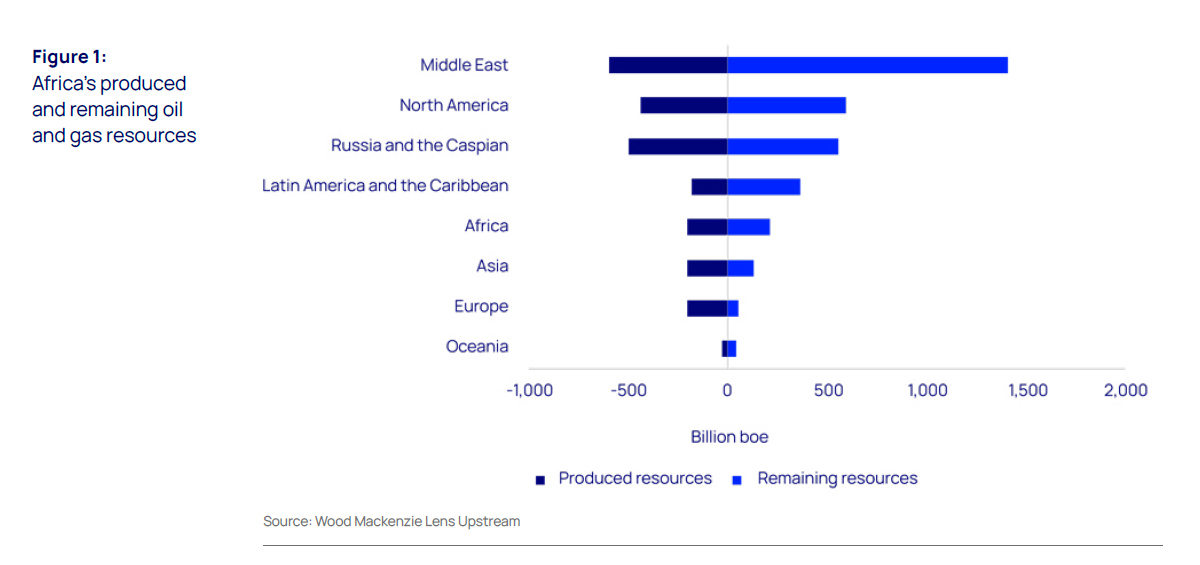
Africa is a significant player in global liquefied natural gas (LNG) markets, accounting for almost 10% of worldwide supply, with substantial growth potential ahead. The continent leads in floating LNG technology, operating six out of 10 projects globally.
Despite its export success, Africa consumes merely 4% of global gas supply and has the world's lowest per capita consumption at less than one-quarter of the global average. African governments are increasingly recognising the opportunity to develop domestic markets alongside export projects. Cross-border pipeline proposals demonstrate growing regional cooperation, with gas-to-power transitions offering the most economic route to monetise resources.
"By 2050, Africa will be home to around 2.5 billion people, more than one billion more than its current population. The continent possesses the resources to achieve energy sufficiency. The challenge lies not in availability but in mobilising capital, improving governance, and implementing innovative solutions to unlock the continent's immense energy potential for its people," said Mohammed.
Africa accounts for only 3.5% of global emissions. An argument can be made that it needs to draw on all of its resources to industrialise, while the rest of the world needs to decarbonise faster. The continent's balanced approach - maximising both renewable potential and responsible hydrocarbon development - offers the most viable path to energy prosperity for future generations.
- 《美丽倩颖:彰显国货护肤品的卓越影响力》
- 西安市莲湖区法院:法润平安 “典”亮童心
- 2025国际青年日,知行计划发布半年报,700余所高校4000余支团队燃爆今夏
- 国际应急中心香港分中心正式授牌 卢广峰主席授牌强化区域应急能力
- LTIMindtree与IBM携手推进量子创新生态系统的发展
- 临商银行北京路支行“三个标准”开展“金融标准 为民利企”主题活动
- 北京爱尔英智眼科医院谷威院长提醒,近视超过600度,应当定期查眼底!
- 燃动黔南 |2025贵州·黔南铁人三项赛激情开赛!
- 从水乡到山川,叶其嘉中国画展登陆肇庆同古美术馆!“澄怀味象”带你品岭南水墨新境
- Modelo and Edson Álvarez Team Up to Introduce ‘La Bota Especial’
- 佛山市四川省南充市商会第二届第一次会员大会暨理(监)事就职典礼圆满举行
- 对于大众老粉来说,金标大众的“新”到底新在哪?
- 轨道交通学院:开展“千年运河绘新卷,百里画廊映古今”暑期社会实践活动
- DTN推出业界首个运营决策平台,转变企业在动荡世界中的竞争方式
- 【专列首发】近停视界登陆长安街地铁巡展国家级科研实力中国儿童青少年近视防控新标杆
- Esri的ArcGIS Online获得FedRAMP中等级别授权,扩大了面向用户的价值
- Zoom Appoints Mike Fenger to Board of Directors
- “HPV男女共防计划”北半马主题活动新闻发布会在京举办
- 良创酒庄:品质与服务的双重保障,开启酒类电商新篇章
- 腾盛博药宣布与健康元集团就BRII-693的大中华区权益达成许可协议
推荐
-
 大家一起关注新疆乌什7.1级地震救援见闻
看到热气腾腾的抓饭马上就要出锅、村里大家
资讯
大家一起关注新疆乌什7.1级地震救援见闻
看到热气腾腾的抓饭马上就要出锅、村里大家
资讯
-
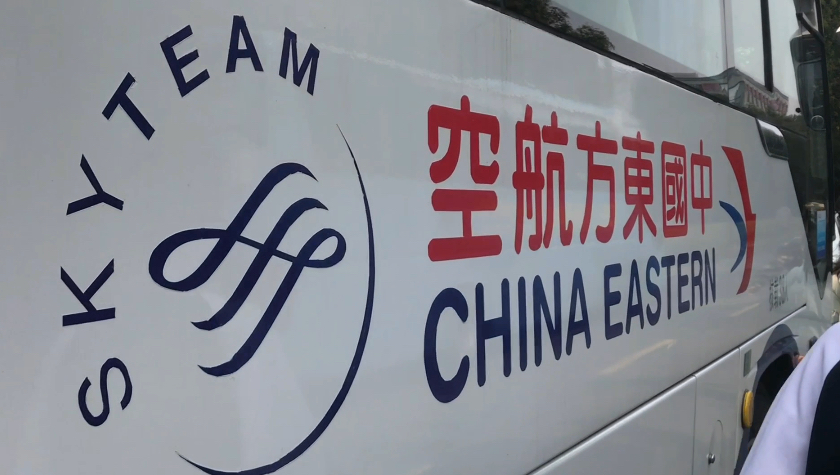 男子“机闹”后航班取消,同机旅客准备集体起诉
1月4日,一男子大闹飞机致航班取消的新闻登上
资讯
男子“机闹”后航班取消,同机旅客准备集体起诉
1月4日,一男子大闹飞机致航班取消的新闻登上
资讯
-
 中央气象台连发四则气象灾害预警
暴雪橙色预警+冰冻橙色预警+大雾黄色预警+
资讯
中央气象台连发四则气象灾害预警
暴雪橙色预警+冰冻橙色预警+大雾黄色预警+
资讯
-
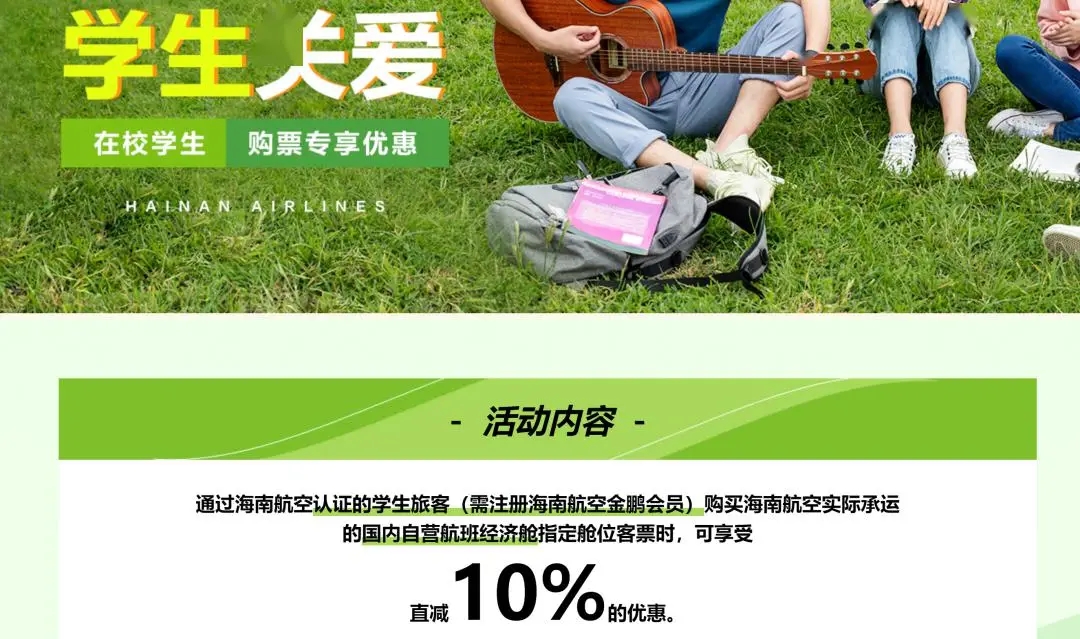 海南大学生返校机票贵 有什么好的解决办法吗?
近日,有网友在“人民网领导留言板&rdqu
资讯
海南大学生返校机票贵 有什么好的解决办法吗?
近日,有网友在“人民网领导留言板&rdqu
资讯
-
 奥运冠军刘翔更新社交账号晒出近照 时隔473天更新动态!
2月20日凌晨2点,奥运冠军刘翔更新社交账号晒
资讯
奥运冠军刘翔更新社交账号晒出近照 时隔473天更新动态!
2月20日凌晨2点,奥运冠军刘翔更新社交账号晒
资讯
-
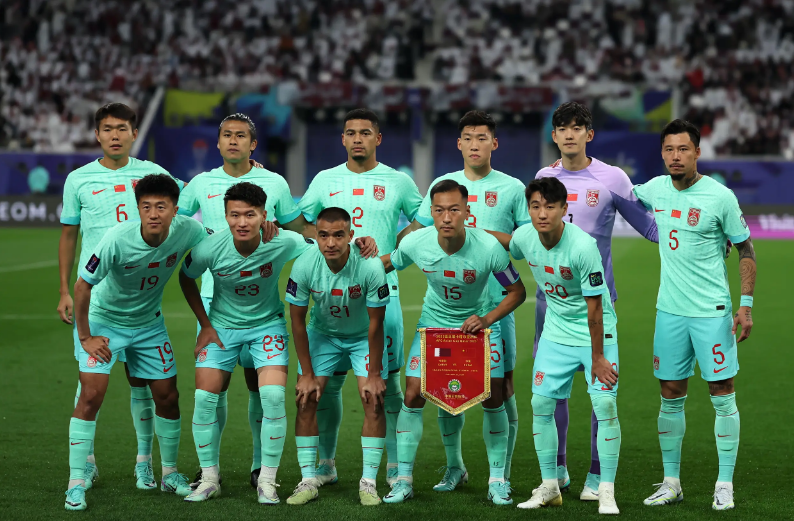 国足13次出战亚洲杯首次小组赛0进球
北京时间1月23日消息,2023亚洲杯小组
资讯
国足13次出战亚洲杯首次小组赛0进球
北京时间1月23日消息,2023亚洲杯小组
资讯
-
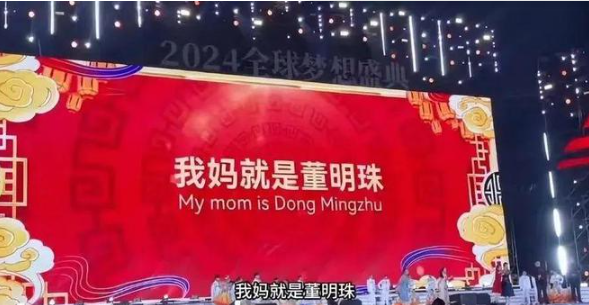 王自如被强制执行3383万
据中国执行信息公开网消息,近期,王自如新增一
资讯
王自如被强制执行3383万
据中国执行信息公开网消息,近期,王自如新增一
资讯
-
 周星驰新片《少林女足》在台湾省举办海选,吸引了不少素人和足球爱好者前来参加
周星驰新片《少林女足》在台湾省举办海选,吸
资讯
周星驰新片《少林女足》在台湾省举办海选,吸引了不少素人和足球爱好者前来参加
周星驰新片《少林女足》在台湾省举办海选,吸
资讯
-
 看新东方创始人俞敏洪如何回应董宇辉新号分流的?
(来源:中国证券报)
东方甄选净利润大幅下滑
资讯
看新东方创始人俞敏洪如何回应董宇辉新号分流的?
(来源:中国证券报)
东方甄选净利润大幅下滑
资讯
-
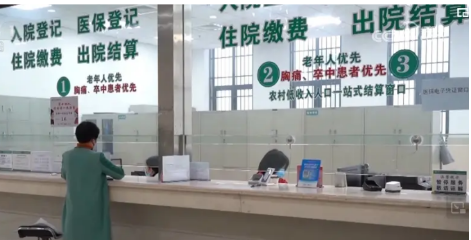 透过数据看城乡居民医保“含金量” 缴费标准是否合理?
记者从国家医保局了解到,近期,全国大部分地区
资讯
透过数据看城乡居民医保“含金量” 缴费标准是否合理?
记者从国家医保局了解到,近期,全国大部分地区
资讯

